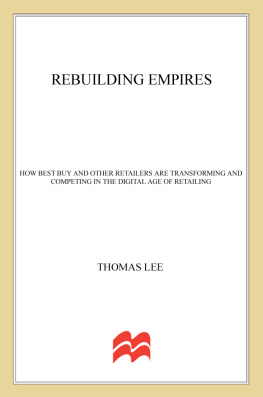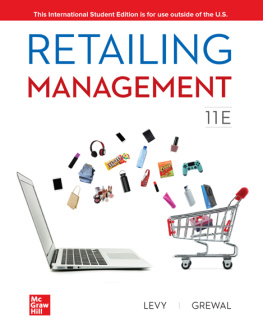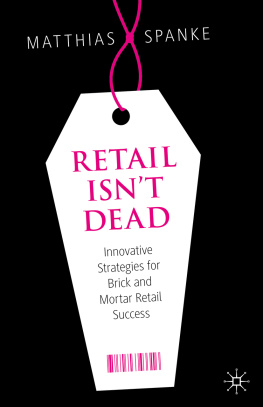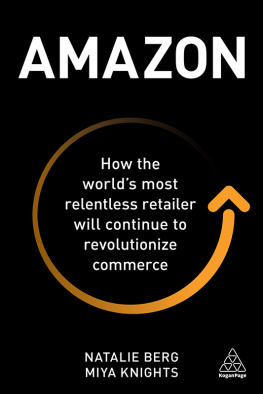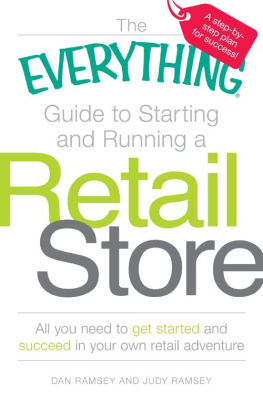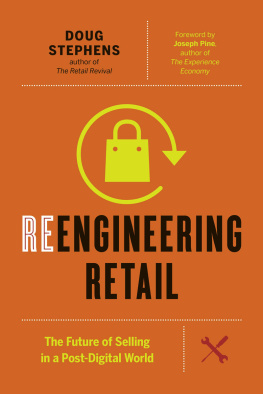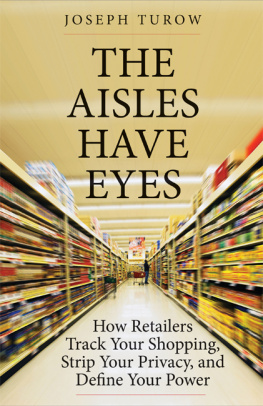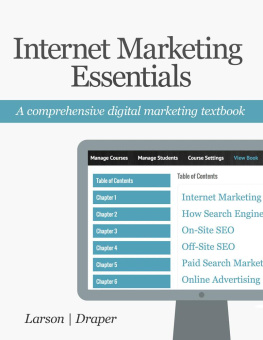Contents
Guide
REBUILDING EMPIRES
HOW BEST BUY AND OTHER
RETAILERS ARE TRANSFORMING
AND COMPETING IN THE
DIGITAL AGE OF
RETAILING
THOMAS LEE

The author and publisher have provided this e-book to you for your personal use only. You may not make this e-book publicly available in any way. Copyright infringement is against the law. If you believe the copy of this e-book you are reading infringes on the authors copyright, please notify the publisher at: us.macmillanusa.com/piracy.
IN APRIL 2011, BEST BUY CO. ISSUED AN UNUSUAL STATEMENT THAT said CEO Brian Dunn had resigned from the company.
That Dunn resigned was not the unusual part. I had been covering Best Buy, based in Richfield, Minnesota, for the Star Tribune in Minneapolis for only eight months, but it didnt take a genius to figure out that Dunn was on the hot seat.
With the economy still recovering from the Great Recession and Amazon and Apple growing in strength, the worlds largest consumer electronics retail chain was in serious trouble. Dunn, a longtime Best Buy veteran, seemed powerless to respond. Investors suggested it was time for Dunn to go.
Normally, a company that fires its CEO would say the executive left to pursue other opportunities or spend more time with family. Instead, Best Buys statement only said there were no operational differences between Dunn and Best Buy.
I soon learned from sources that the board of directors was investigating Dunn amid allegations that he used company resources to carry on an affair with a female employee. Throughout his career, Dunn had gained a reputation as an aggressive, hard-partying salesman. Inside Best Buy, it was an open secret that Dunn was fond of women. Maybe too much so.
Founder Dick Schulze eventually relinquished his chairmanship and left Best Buy only to launch a high-stakes effort to take the company private. In the end, Schulze dropped his bid and rejoined Best Buy as chairman emeritus.
If you exclude the melodrama, Best Buys situation wasnt particularly unique. Across the industry, big-box retail was under attack by forces seemingly beyond its control: migration of traffic from stores to online retailers like Amazon, the rapid commoditization of once high-margin goods like electronics, the slow recovery of the American economy following the worst financial crisis since the Great Depression of the 1930s.
Circuit City and Borders are gone. Sears and JCPenney look listless. Even historically well-run retailers like Wal-Mart Stores, Inc. and Target Corp. feel enormous pressure. Best Buys problems just happened to be more messy and sensational.
Big-box retailing is perhaps one of Americas greatest innovations. From Costco to Walmart, these chains overwhelmed independent stores with brute force by leveraging their size to offer consumers selection and prices that competitors could not match.
Best Buy was one of the most successful of these big-box retailers. From just one electronics store in St. Paul, Minnesota, Schulze built a global empire that generates more than $50 billion in annual sales.
But Best Buys knack for reinvention and innovation had faded over the previous few years, and the company fell victim to its own hubris and a wayward culture that was unable to adapt to the most disruptive force the industry has ever witnessed: the Internet.
Innovative players like Amazon and Apple and new technologies like smartphones and tablets have pushed old-fashioned brick-and-mortar retailers to the brink of irrelevance. As consumers purchase more of their goods online, big-box retailers find it harder and harder to convince shoppers to visit their stores.
Traffic to big box is like blood to human beings: you cant survive without a constant, steady flow. Without a certain number of people walking through those doors, the business model that underpins big box simply crumbles. Without shoppers, big-box chains are left with thousands of giant, half-full warehouses. Suddenly, the very thing that made big box successfulspaceseems more like an albatross than a benefit.
But contrary to the doomsday declarations emanating from Wall Street and armchair pundits, big box is not dead nor will it be for some time. If ever.
As history consistently demonstrates, companies that survive turmoil are usually the ones that manage to replace complacency and dysfunction with innovation and sound judgment.
Walmart, for instance, launched an in-store service that allows shoppers to convert their DVDs to the cloud, where they can access the content on any mobile device. Target is collaborating with Facebook to drive consumers to its stores with the help of mobile devices and digital coupons.
I think there is nothing wrong with a big store, said Nadia Shouraboura, a former top executive at Amazon. I think the big store format is a good thing; it just needs to run much more efficiently and it needs to run much, much better. I dont think that big boxes will be dead. I think they will be a place for customers to try and play and experiment with products and walk away with what they want.
Best Buy has emerged as the biggest surprise of all. Just a year or two ago, people predicted the retailer would soon file for bankruptcy.
Today, the company, under new CEO Hubert Joly, has revitalized itself. Joly, a turnaround specialist who had no previous retail experience, adopted a strategy that favors, at least for now, improvement over reinvention.
He has so far resisted closing stores. Amazon and Apple aside, Best Buy, he argues, doesnt face an existential problem as much as a basic retail problem: promoting effective customer service, creating a user-friendly website, ensuring shelves are full of the right product.
Its not rocket science, Joly told me.
The CEO has also embraced newer innovations like year-round price matching, shipping goods from stores to online customers, and leasing space to Samsung and Microsoft to operate their own stores inside Best Buy locations.
People used to say our space was a liability, Joly said. Now it has become an asset.
Joly didnt know it at the time, but he just eloquently summed up the vision behind this book: how big box can embrace, not repudiate, its largeness in the age of digital retail.
The book is divided into two sections: Part I examines the history of big-box retail, specifically focusing on Best Buy and Target. Part II examines the strategies those companies are deploying to better compete in a fast-changing industry.
For my research, I spoke to former executives and employees at Best Buy and Target along with several consultants, retail executives, analysts, and academics. I interviewed Best Buy CEO Hubert Joly on the record, but quotes from the companys other executives were not for attribution. My interviews with Target chief marketing officer Jeff Jones and digital chief Casey Carl were on the record. I also relied heavily on my reporting at the Star Tribune, retail books, and biographies privately published by Schulze and Bruce Dayton, one of five brothers who helped create Target.
Writing a book is no small chore and I had a lot of help to make it happen: the Star Tribune, notably former executive editor Nancy Barnes and current business editor Todd Stone, Palgrave Macmillan editor Laurie Harting, and my agent John Willig. Best Buy and Target provided invaluable cooperation. Finally, special thanks to John and Bonnie Oslund, Justin Miller, Alyssa Delaney, Jenna Ross, Amy Koo, Kim Garretson, Amy Von Walter, Glen Stubbe, and family and friends for their advice and support.

